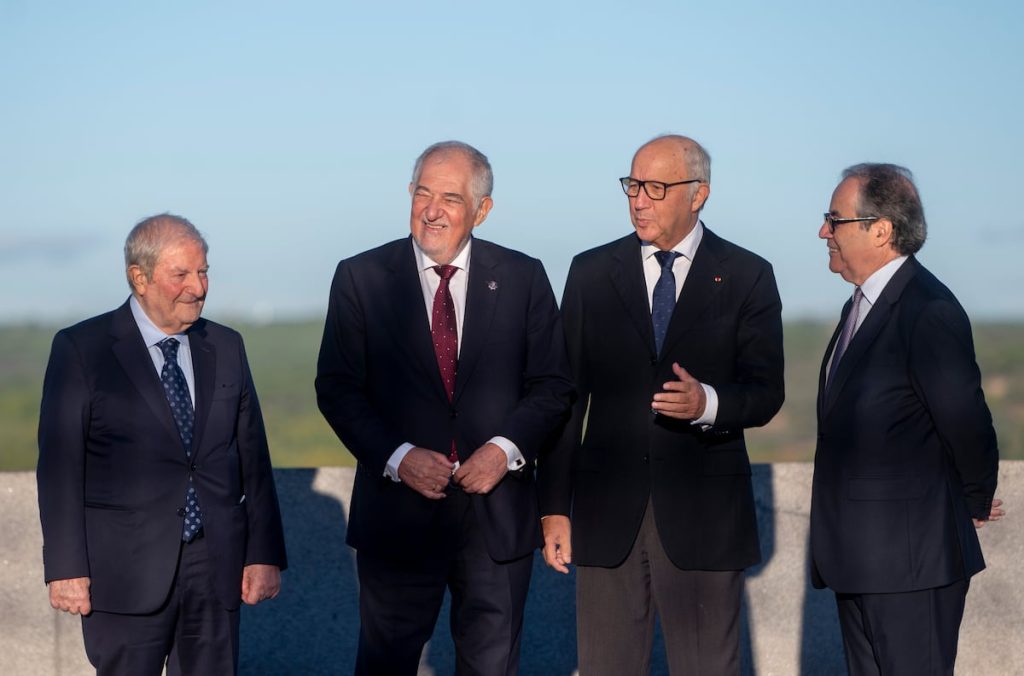The President of the Constitutional Court, Cándido Conde-Pumpido, advocated on Friday for the establishment of a European constitutional common law at the summit of the constitutional courts of France, Italy, Portugal, and Spain, held in Madrid. In his speech, Conde-Pumpido highlighted the role of the Spanish guarantor body as a promoter and guarantor of judicial cooperation in Europe and as an active interlocutor in legal dialogue within the framework of the European Union. He emphasized the importance of judicial dialogue with European courts in Luxembourg and Strasbourg, as well as with the organs participating in the meeting. The summit focused on constitutional courts as actors in European constitutionalism, highlighting the value of comparative law and horizontal precedents in fostering a common legal culture.
Representatives from Spain, France, Italy, and Portugal emphasized at the summit that constitutional jurisdictions have promoted the expansion of fundamental rights, constitutional democracies, the rule of law, and a common legal culture. Conde-Pumpido stated that understanding foreign judicial decisions, especially those of neighboring countries, can be useful in resolving complex issues and interpreting the Constitution for the future. He also highlighted Spain’s adherence to the European Union as a significant transformation process for the national legal system, leading to constitutional reforms in 1992 and 2011 to align with EU law, including allowing EU citizens to participate in municipal elections and ensuring budget stability.
Vice President Inmaculada Montalbán Huertas discussed in her presentation how the jurisprudence of the Spanish Constitutional Court has cited decisions from foreign guarantor bodies over its 44-year history, contributing to the development of a common European constitutional law. The participation of Spain’s Constitutional Court at the summit included several magistrates and the Secretary General, with the annual meeting originating in 1997 between the Italian and Spanish courts. Portugal joined in 1999, and France’s Constitutional Council participated since 2017. The summit serves as a platform for discussing legal issues, sharing best practices, and fostering cooperation among constitutional jurisdictions in the region.
Conde-Pumpido’s emphasis on the importance of judicial cooperation within the European Union and the mutual influence of legal systems reflects a broader trend towards harmonization and collaboration in ensuring the protection of fundamental rights and the rule of law across Europe. The exchange of experiences and legal principles among constitutional courts is seen as crucial in developing a common legal framework that can adapt to the challenges of the modern world. The integration of European law into national legal systems has required significant adjustments and reforms to ensure compliance with EU norms and standards.
The commitment of Spain’s Constitutional Court to promoting judicial dialogue and knowledge exchange with its European counterparts underscores the importance of a united legal approach in addressing complex legal issues and upholding the principles of democracy and the rule of law. The annual summit of constitutional courts in Madrid serves as a platform for enhancing cooperation, fostering mutual understanding, and promoting a common legal culture across Europe. Conde-Pumpido’s call for the establishment of a European constitutional common law reflects a long-term vision of legal integration and cooperation among European nations, highlighting the role of constitutional courts in shaping the legal landscape of the region.


